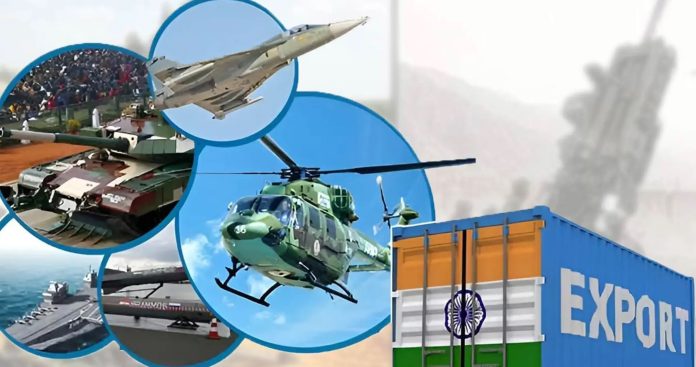NEW DELHI, Dec 30: The Indian defence sector would grow at a Compound Annual Growth Rate (CAGR) of around 20 per cent over the next five years on the back of strong government backing and increasing private sector participation, CareEdge Ratings said in a report on Monday.
The rating agency said that during financial years 2023-24 (FY24) to 2028-29 (FY29), the defence sector is estimated to maintain a PBILDT (profit before interest, lease rentals, depreciation and taxation) margin of around 20per cent.
“Indian defence sector companies are set to further enhance the country’s defence capabilities, reduce import dependency, and elevate its global stature,” CareEdge Ratings said in a release.
The rating agency said that the collaboration between government and private sector entities in India’s defence sector has driven advancements in arms and ammunition, aerospace, electronics, and naval technologies.
“Private sector entities, both domestic and multinational, are expected to play a pivotal role in advancing defence modernisation, leveraging their engineering and technological expertise. This collaboration has been supported by policies such as ‘Make in India’ and liberalised FDI norms, which have enhanced domestic manufacturing capabilities, attracted international investments in defence innovation and driven notable growth in exports of military equipment,” it said.
India has set an ambitious annual defence production outlay of Rs 1.75 lakh crore for FY25 which is expected to grow at a CAGR of around 20per cent to Rs 3 lakh crore (as per Ministry of Defence) by FY29, as per the rating agency.
Dr Naveen Kumar, Associate Director, CareEdge Ratings said, “India’s defence sector is on the cusp of significant modernisation, with a strong emphasis on indigenous production to make us more self-reliant in the matter of national security. Under the ‘Make in India’ initiative, there is an expected increase in collaboration between domestic and international defence firms to develop cutting-edge military equipment. Geo-political dynamics and maritime security concerns will shape defence priorities, influencing procurement strategies and strategic partnerships. Emerging technologies such as artificial intelligence (AI) and hypersonic weapons will be crucial in enhancing defence capabilities, which could drive substantial investments in research and development (R&D).”
(UNI)
Trending Now
E-Paper


